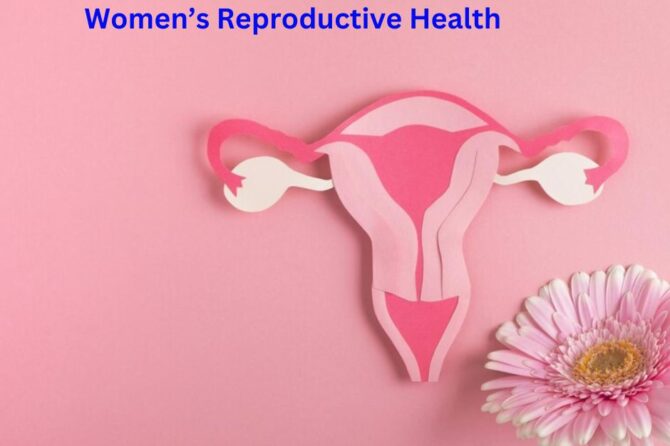
Reproductive health is important for every woman. Whether you plan a baby or want to improve your reproductive health, you should know how you can take good care of your reproductive system. The female reproductive system, comprising both internal and external organs, plays a crucial role in sexual activity, menstruation, and fertility.
Maintaining women’s reproductive health includes both non-surgical and surgical options. However, a holistic approach to women’s reproductive health involves therapies, exercises, yoga, weight management, a balanced diet, and lifestyle changes. The holistic approach addresses physical, mental, and social well-being, and recognizes that these aspects are interconnected and play a crucial role in overall health.
As individual healthcare needs can vary, you can connect with healthcare professionals for personalized advice and guidance based on specific circumstances. Then you can go ahead accordingly.
Here are the key components of a holistic approach to women’s reproductive health:
Education and Awareness:
- Promote comprehensive sex education to empower women with knowledge about their bodies, reproductive anatomy, and menstrual health.
- Raise awareness about different contraceptive options and family planning methods.
Regular Check-ups and Screenings:
- Encourage regular gynecological check-ups for early detection and prevention of reproductive health issues.
- Promote screenings for sexually transmitted infections (STIs) and other reproductive health conditions.
Mental Health Support:
- Acknowledge the impact of mental health on reproductive well-being and provide support for stress management and mental health issues.
- Address the emotional aspects of reproductive health, including fertility concerns, pregnancy-related stress, and postpartum mental health.
Family Planning and Contraception:
- Provide access to a range of contraceptive options to allow women to make informed choices about family planning.
- Support discussions about family planning within the context of overall life goals.
Prenatal and Postnatal Care:
- Offer comprehensive prenatal care that includes monitoring physical health, prenatal exercises, emotional well-being, and education about childbirth.
- Provide postpartum support, and postnatal exercises, addressing both physical recovery and mental health needs.
Access to Reproductive Healthcare Services:
- Advocate for and ensure accessibility to affordable and quality reproductive healthcare services.
- Address barriers to healthcare access, such as geographical location, financial constraints, and cultural stigmas.
Community Engagement and Support:
- Foster a sense of community support through forums, support groups, and educational initiatives.
- Encourage open communication about reproductive health within families and communities.
Therapies For Women’s Reproductive Health:
Here are some therapies that can help to improve and maintain women’s reproductive health.
Pelvic Floor Physical Therapy:
- Pelvic floor exercises can help strengthen the pelvic muscles, supporting overall reproductive health. A physical therapist specializing in pelvic health can guide exercises tailored to individual needs.
Counselling and Mental Health Support:
- Seek counseling or therapy if dealing with stress, anxiety, or other mental health issues. Emotional well-being is closely linked to reproductive health.
Massage Therapy:
- Massage can help relax muscles, reduce stress, and improve blood circulation. Abdominal massage, in particular, may support reproductive health by promoting optimal organ function.
Yoga and Meditation:
- Practices like yoga and meditation can help reduce stress, improve flexibility, and enhance overall well-being. Certain yoga poses may specifically target pelvic health.
Exercises For Women’s Reproductive Health:
Encourage regular physical activity, which can positively impact menstrual health and overall well-being.
Cardiovascular Exercise:
- Engage in regular aerobic exercises like walking, jogging, swimming, or cycling. Cardiovascular fitness supports overall health, including reproductive well-being.
Strength Training:
- Incorporate strength training exercises to maintain muscle mass and bone density. Weight-bearing exercises are especially beneficial for bone health.
Pelvic Floor Exercises (Kegels):
- Strengthen the pelvic floor muscles with Kegel exercises to improve bladder control, support reproductive organs, and enhance sexual health.
Core Exercises:
- Include core-strengthening exercises to support the lower back and pelvic region. Planks, pelvic tilts, and Pilates exercises can be beneficial.
Diet Plan For Women’s Reproductive Health:
Emphasize the importance of a balanced diet rich in essential nutrients for reproductive health. For medications of calcium, vitamins, iron, and more you can connect with your healthcare professional.
Balanced Nutrition:
- Maintain a well-balanced diet with a variety of fruits, vegetables, whole grains, lean proteins, and healthy fats. Adequate nutrition supports overall health and reproductive function.
Hydration:
- Stay well-hydrated by drinking plenty of water. Proper hydration is essential for overall health and can also support urinary and reproductive function.
Limit Processed Foods and Added Sugars:
- Reduce the intake of processed foods and added sugars, as they can contribute to inflammation and hormonal imbalances.
Moderate Caffeine:
- Consume caffeine and alcohol in moderation, as excessive intake may impact reproductive health.
Quit Smoking and Alcohol:
- You need to quit smoking and alcohol, if you are consuming them.
Healthy Lifestyle For Women’s Reproductive Health
Proper diet & body weight, exercise, and sufficient sleep are habits that help your reproductive system. If you are overweight or underweight then it may cause complications during pregnancy. Also, stress may weaken the body’s immune system and cause various infections. Stress can affect the menstrual cycle, cause hormonal imbalances, and may result in issues eventually.
Surrounding & Women’s Reproductive Health
Heat waves and air pollution can affect the pregnancy. It can cause low birth weight and preterm birth. So we can try to have fresh air and maintain proper temperature around pregnant women.
Remember that to improve your reproductive health you should focus on both mental and physical health. And never feel like a burden while taking care of the reproductive system. By implementing some or all of the above-mentioned ways(with consulting medical experts), you can surely improve your reproductive health.
Still, if you have any queries regarding reproductive health, please consult the experts of AleaqmCure – one of the best rehabilitation centers for women. They have a team of specialists consisting of experienced gynecologists, infertility experts, pelvic floor specialists, physiotherapists, Dieticians, Yoga Instructors, and complementary medical practitioners who are committed to providing compassionate and personalized care to every patient.
Leave a reply

Leave a reply